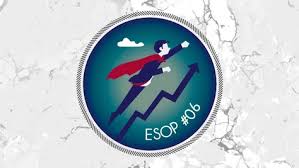Employee Stock Ownership Plans (ESOPs) in Cooperative Contexts Training Course
Employee Stock Ownership Plans (ESOPs) in Cooperative Contexts Training Course offers a practical and strategic understanding of ESOP design, implementation, and compliance tailored to cooperative organizations.
Skills Covered

Course Overview
Employee Stock Ownership Plans (ESOPs) in Cooperative Contexts Training Course
Introduction
The rise of Employee Stock Ownership Plans (ESOPs) within cooperative frameworks represents a transformative shift in organizational ownership, equity participation, and democratic governance. ESOPs not only empower employees through ownership but also promote organizational resilience, loyalty, and wealth distribution. In the cooperative context, ESOPs align with core principles of member equity, participatory decision-making, and sustainable economic inclusion.
Employee Stock Ownership Plans (ESOPs) in Cooperative Contexts Training Course offers a practical and strategic understanding of ESOP design, implementation, and compliance tailored to cooperative organizations. Whether you are a cooperative leader, HR strategist, financial planner, or policy advocate, this training equips you with actionable tools to navigate regulatory frameworks, maximize employee engagement, and drive cooperative growth through shared ownership models.
Course Objectives
- Understand the core principles of ESOPs in cooperative enterprises.
- Identify the legal and regulatory frameworks governing ESOPs.
- Explore the benefits of employee ownership and equity sharing.
- Learn how to structure and implement ESOPs in member-driven organizations.
- Evaluate financial models and tax implications of ESOPs.
- Analyze case studies of successful cooperative ESOP models globally.
- Foster a culture of ownership, participation, and inclusivity.
- Address challenges and risks in ESOP transitions and buyouts.
- Build stakeholder alignment through strategic ESOP communication plans.
- Design HR and governance structures supporting ESOP integration.
- Navigate capital raising strategies and cooperative financing.
- Use ESOPs as tools for succession planning and business continuity.
- Leverage ESOPs to promote sustainable and socially responsible enterprises.
Target Audiences
- Cooperative Board Members
- Human Resource Managers
- Financial Advisors
- Legal and Compliance Officers
- Policy Makers and Regulators
- Cooperative Development Agencies
- Employee Representatives
- Business Succession Planners
Course Duration: 5 days
Course Modules
Module 1: Introduction to ESOPs in Cooperatives
- Definition and evolution of ESOPs
- Principles of cooperatives and alignment with ESOPs
- Advantages of employee ownership in cooperatives
- Common myths and misconceptions
- Key differences from traditional corporate ESOPs
- Case Study: Mondragon Corporation’s employee ownership framework
Module 2: Legal and Regulatory Frameworks
- National and international ESOP legislation
- Cooperative legal structures and ESOP compatibility
- Tax incentives and liabilities
- Governance and fiduciary responsibilities
- Complying with labor laws and securities regulations
- Case Study: USA’s Worker-Owned Cooperative Act compliance
Module 3: Financial Planning and Valuation
- Understanding company valuation for ESOP transition
- Capital structure and equity allocation
- Tax implications for both employees and the organization
- Financing options (bank loans, seller financing, etc.)
- Profit distribution models and retained earnings
- Case Study: Equal Exchange’s financial transition to ESOP
Module 4: Designing ESOPs for Cooperatives
- Eligibility criteria for participants
- Vesting schedules and stock allocation strategies
- Role of ESOP trustees and administrators
- Communication and education planning
- Aligning ESOPs with cooperative principles and bylaws
- Case Study: Namaste Solar’s participatory plan design process
Module 5: HR and Organizational Integration
- ESOP’s impact on employee motivation and retention
- Aligning HR practices with ESOP goals
- Building ESOP literacy across the workforce
- Managing organizational change during implementation
- Integrating performance incentives into ownership culture
- Case Study: Recology’s HR-led ESOP engagement programs
Module 6: Governance and Decision-Making
- Democratic participation in decision-making
- ESOP representation in cooperative boards
- Conflict resolution and member dispute frameworks
- Balancing transparency and confidentiality
- Strengthening accountability through policy design
- Case Study: Cooperative Home Care Associates (CHCA) governance structure
Module 7: Succession Planning and Continuity
- Using ESOPs as an exit strategy
- Ensuring leadership continuity through internal ownership
- Steps for a smooth ownership transition
- Roles of retiring owners and stakeholders
- Legal agreements for phased transfer of control
- Case Study: New Belgium Brewing’s ownership transition journey
Module 8: Monitoring, Impact Assessment, and Growth
- Tracking financial and social impact of ESOPs
- Continuous feedback and performance monitoring
- Enhancing growth through shared ownership
- Exit strategies and repurchase obligations
- Adapting ESOPs in changing cooperative landscapes
- Case Study: Namasté Solar’s long-term impact evaluation
Training Methodology
- Interactive presentations with visual aids and infographics
- Real-world case study analysis and group discussions
- Guided hands-on exercises for ESOP structuring
- Expert Q&A sessions and peer learning
- Knowledge checks and mini-assessments after each module
- Final team-based ESOP design project for cooperatives
Register as a group from 3 participants for a Discount
Send us an email: info@datastatresearch.org or call +254724527104
Certification
Upon successful completion of this training, participants will be issued with a globally- recognized certificate.
Tailor-Made Course
We also offer tailor-made courses based on your needs.
Key Notes
a. The participant must be conversant with English.
b. Upon completion of training the participant will be issued with an Authorized Training Certificate
c. Course duration is flexible and the contents can be modified to fit any number of days.
d. The course fee includes facilitation training materials, 2 coffee breaks, buffet lunch and A Certificate upon successful completion of Training.
e. One-year post-training support Consultation and Coaching provided after the course.
f. Payment should be done at least a week before commence of the training, to DATASTAT CONSULTANCY LTD account, as indicated in the invoice so as to enable us prepare better for you.